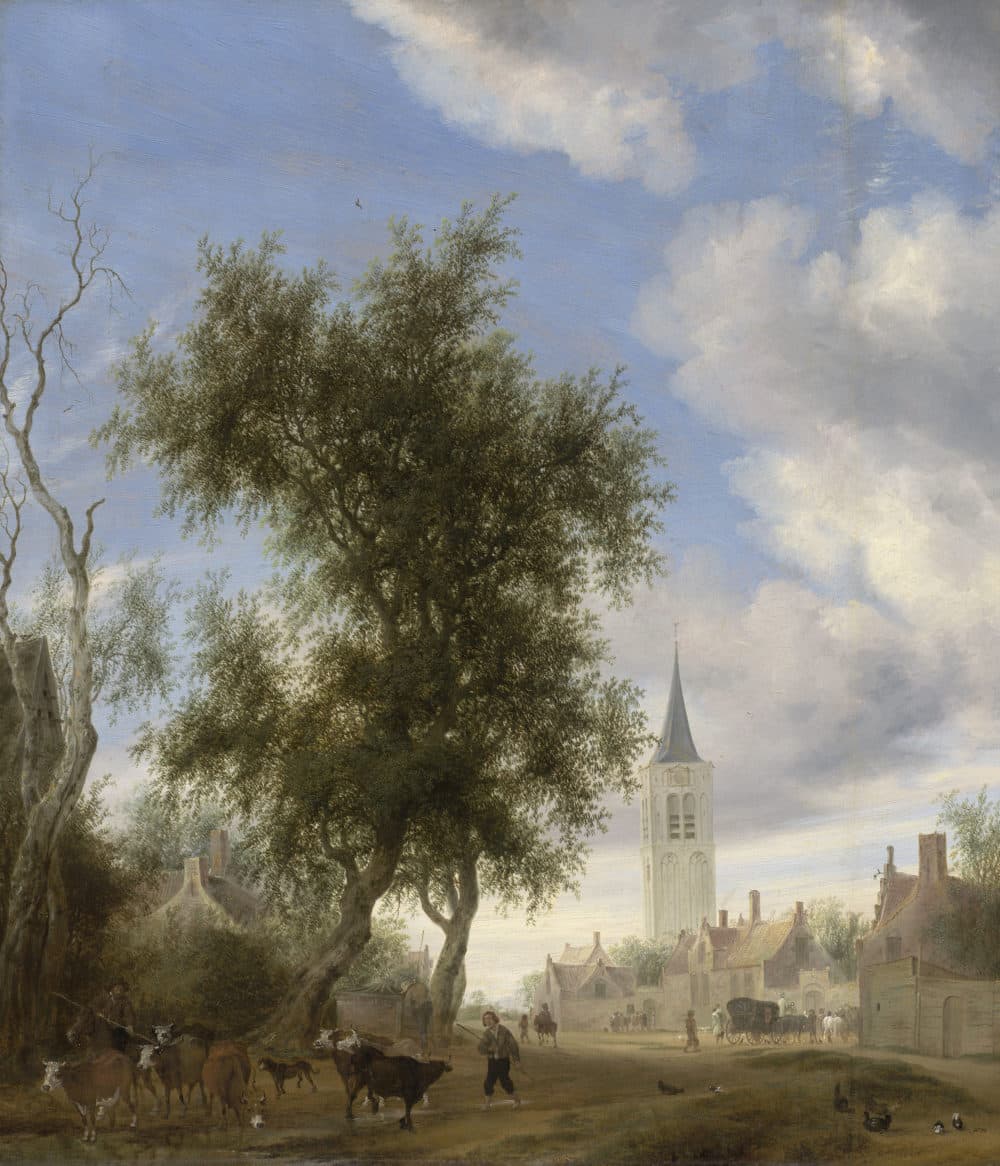Advertisement
MFA returns painting stolen from Jewish collector during WWII
When Nazi forces invaded Hungary in 1944, the Jewish politician and art collector Ferenc Chorin and his family were lucky to escape with their lives. Chorin’s collection of paintings, which he left in a vault in the Hungarian Commercial Bank of Pest, was less fortunate. The entire collection disappeared from the vault in the course of the war — likely looted during the Siege of Budapest in 1945.
Nearly 80 years later, Chorin’s family located one of the paintings, “View of Beverwijk,” in the permanent collection of the Museum of Fine Arts in Boston. The museum announced this month that it had reached an agreement to return the painting to the family.
“To be able to redress that loss, even in a tiny way, I think, is gratifying. And it certainly is part of what we should be doing as a museum,” said the MFA’s curator for provenance, Victoria Reed.

The MFA knew little about the provenance of “View of Beverwijk” when it acquired the painting from a London collector in 1982. The collector told the museum that the painting, a landscape by the Dutch painter Salomon van Ruysdael from 1646, had once been part of a Swiss collection. A torn label on the back of the painting indicated that it had been in Hungary.
That label, said Reed, was “a red flag,” since the Nazis were known to have pilfered Hungarian Jewish wealth. “However, despite prioritizing this, trying to run a search through the art loss register, photographing the back, contacting the dealer, I was never able to get more information for this painting,” Reed said.
Unbeknownst to Reed, the “View of Beverwijk” was listed in a book on Hungarian war losses — but with the incorrect image attached. Then, in 2019, came a small break in the case. A Hungarian scholar emailed the MFA to let them know that the painting had once belonged to an art collector named Frigyes Glück.
At that point, all Reed did was update the painting’s listing on the MFA’s website, still unaware that it had been stolen from a Jewish collector during WWII. But the new information was enough to tip off Chorin’s family, who knew that he had probably acquired the painting from Glück’s estate.
When the Chorin family’s lawyer reached out to Reed last year, the curator was “thrilled,” she said. “This is why we have a website, this is why we put provenance information online, this is why we put our collection online,” Reed said. “It can really assist people — Holocaust victims and their heirs — who are still looking for lost assets, to more easily find them. And in this case, that’s exactly what happened.”
The lawyer for the Chorin family provided the museum with detailed documentation of the painting’s provenance, making it an easy matter to authenticate the work. “There was not a strong curatorial desire to keep the painting,” Reed said, so rather than compensate the family financially, the museum arranged to return “View of Beverwijk” to its rightful heirs.
“View of Beverwijk” is currently on public view at Christie’s in New York. The family plans to auction it off later this year.
